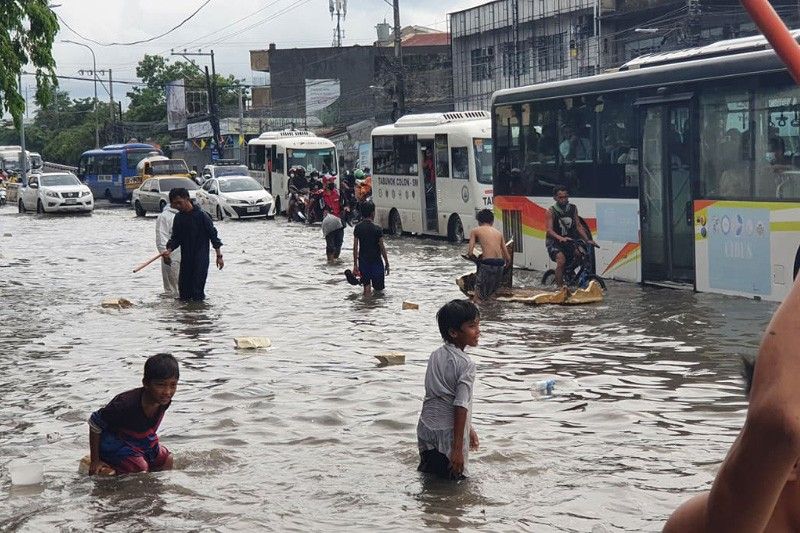Mabuhay and Welcome to the Pearl of the Orient Seas!
When I was a kid, years before I grew to depend on the internet for information, my father used to gift me yearly almanacs on my birthday. Although I was (and still am) more partial to books of the fictional variety, I enjoyed reading the children’s almanacs—partly because it usually had that new-book smell, and partly because the colorful pictures and layouts were fun to look at. It was in these books that I first heard the concepts “climate change,” “global warming,” and “environmental crisis.”
As I grew older, I encountered these terms in school—often in Science-related subjects. Eventually, these words made their way out of the confines of the four walls of my classroom, manifesting in events that I have often bypassed: the increasing phone notifications for heavy rainfall, the trending climate keywords on Twitter, the recent alarming flooding incidents in my city, and much more.
Yet, despite all these encounters, I find that there is a distinct lack of climate crisis awareness within the Philippine locality.
Venezia May’s poem, “If Moses was Filipino,” illustrates a character who weathers through the yearly Metro Manila floods, detailing their feelings of fear, apprehension, and eventual acceptance of the situation. Despite the gravity of the situation, the poem depicts the narrative of “resiliency” the character chooses to endure, as seen in the way they likened themself to the Biblical figure, Moses, who was famous for undergoing God’s seven deadly plagues.
(The Jews were exiled from the land and had to spend forty years wandering the deserts of Egypt, by the way. Food for thought.)
A country ruled by the dry and wet seasons, the Philippines is also subject to the El Niño and La Niña cycles. This means that we encounter years of dry and hot weather, followed by years of above-average rainfall. Because of these circumstances (and how megacities are generally regarded as unliveable), we have adapted to a lifestyle of tolerating and turning a blind eye to the worsening effects of climate change. Out of sight is out of mind, as they say.
 |
| A flooding incident in Cebu City, the second-largest metropolitan area outside of Metro Manila. Photo from https://www.philstar.com/the-freeman/cebu-news/2022/07/11/2194637/barangays-cebu-city-flood-control-projects-first. |
Huge corporations have even been known to take advantage of these blasé attitudes by downplaying their negative impact on the environment. If the helpless have no choice but to weather deadly disasters, companies undermine the climate crisis in the quest for profit. In a society that values hoarding money and resources, we thrive on capitalism and the universal language is money.
In Margaret Atwood’s “It’s Not Climate Change, It’s Everything Change” essay, Barry Lord states that the use of oil and gas as a main source of energy has allowed the world to enter a culture of consumerism—hence, most of our systems are built around the concept of constant buy and trade. It is difficult to shift into a system of sustainable living when consumerism is embedded in our lifestyle.
The idea of the looming climate crisis feels like being stuck between a rock and a hard place. Although I am aware that something must immediately be done before climate change’s terrible effects come to bite us in our posteriors, I cannot help but feel apprehensive when faced with the reality that saving our planet takes more than just buying bamboo straws, going vegan, and the occasional donation to environmental NGOs.
Governments must take a proactive stance and corporations must be held accountable. More importantly, we must learn to check our carbon footprint and prepare to face an inevitable lifestyle change.
References:
·
Atwood, M. E. (2018, June 21). It’s Not
Climate Change — It’s Everything Change - Matter. Medium. Retrieved
September 17, 2022, from https://medium.com/matter/it-s-not-climate-change-it-s-everything-change-8fd9aa671804
·
Back-to-back La Nina seems likely to continue
for the third year. (2022, July 7). Manila Bulletin. Retrieved September
17, 2022, from
https://mb.com.ph/2022/07/08/back-to-back-la-nina-seems-likely-to-continue-for-the-third-year/
·
May, V., & Salazar, J. (2021, October 12). Three
Poets on Climate Change. Singapore Unbound. Retrieved September 17, 2022,
from https://singaporeunbound.org/blog/2021/7/23/three-poets-on-climate-change

very well written essay!! ^__^
ReplyDelete